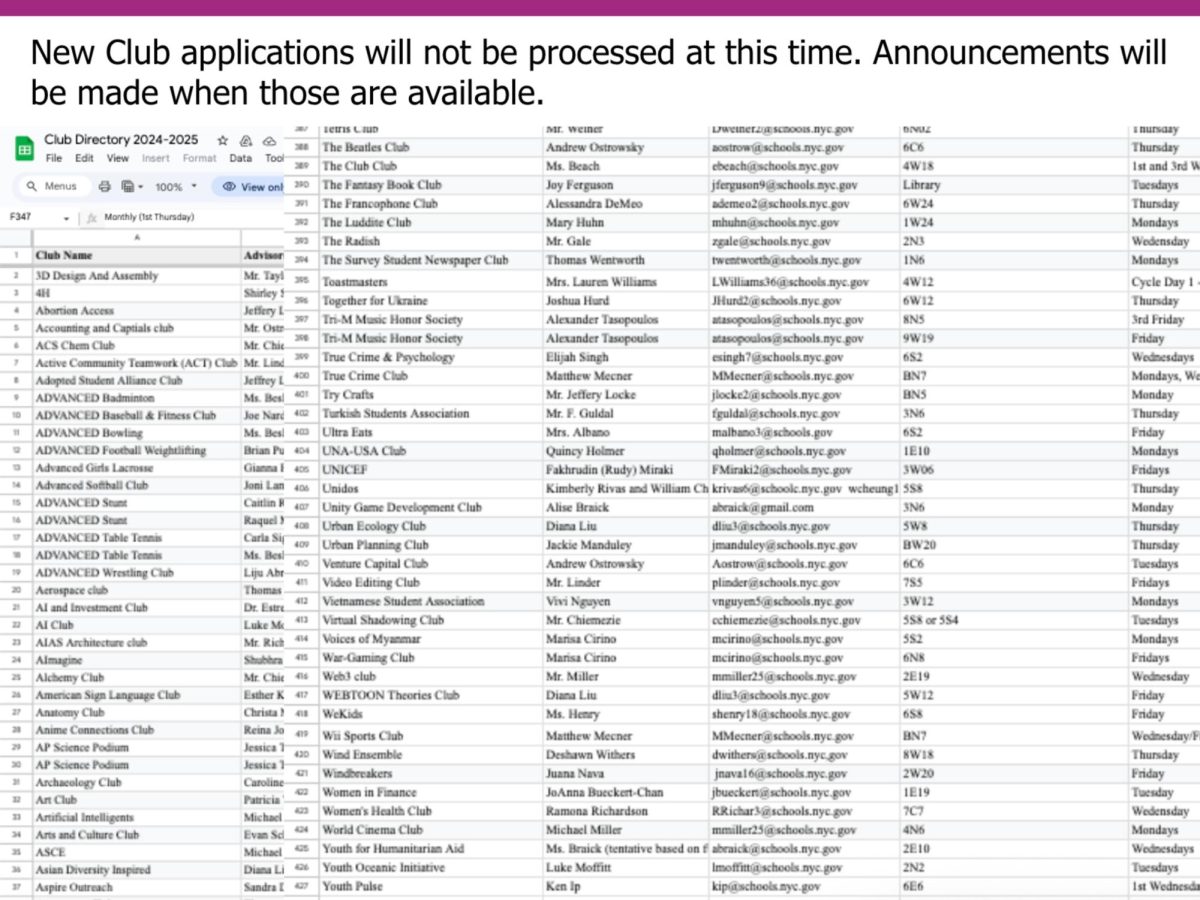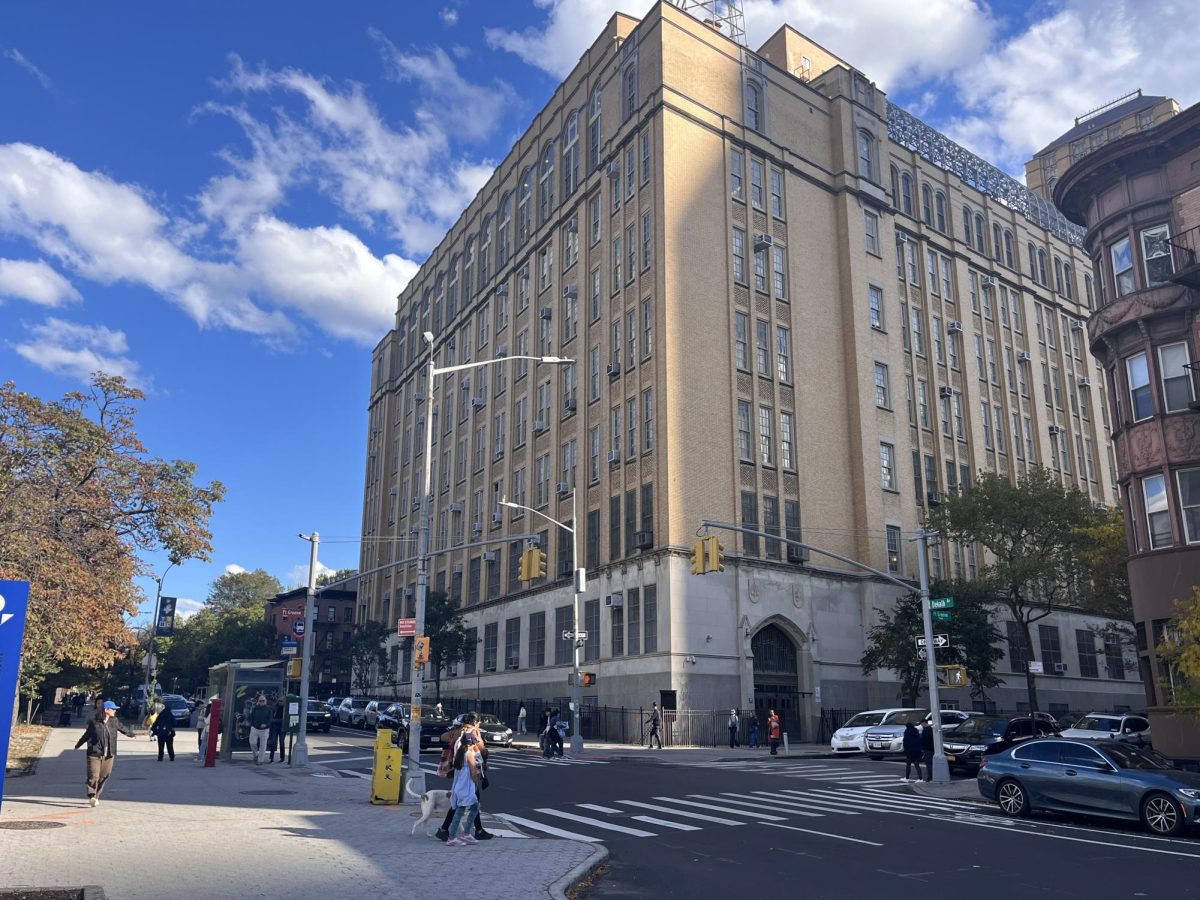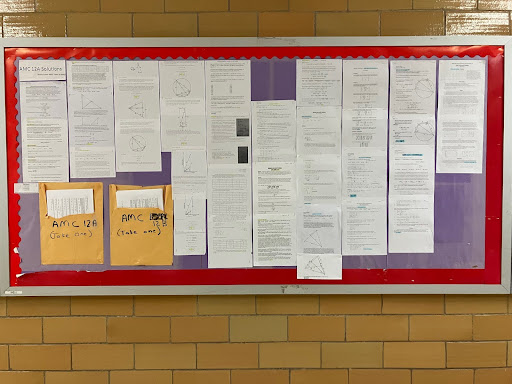It’s no secret that students in a competitive educational environment like Brooklyn Tech juggle a lot: AP classes, clubs, sports, jobs, and a heavy load of homework. In recent years, Tech students have joined high schoolers nationwide, whose mental health issues have reached crisis levels.
The Society for Adolescent Health and Medicine found that 42.7% of teens reported at least one mental health problem, with conditions such as anxiety, depression, and suicidality being the most prevalent. With nearly every other U.S. teen suffering such intense distress, addressing this epidemic is critical.
“There’s a lot of pressure to do well in classes, clubs, and extracurriculars.” explained Sophomore Class President Durdona Melisova (‘27). “It’s not just about missing out on activities. Students feel like they have to achieve a certain level of perfection.”
A poll conducted by The Survey asked students whether they “often feel overwhelmed by the pressure to excel,” and 92% responded “yes.” In response to this academic pressure, many of Tech’s social workers, guidance counselors, and teachers have taken steps to provide students with safe spaces for mental health conversations and emotional well-being.
“With your counselor, you have the same person who has known you for four years and can support you academically, emotionally, socially, and outside of the school,” explained Mr. Jan-Kristof Louis-Mansano, Assistant Principal of Guidance, who emphasized that counselors provide an open door for students struggling with personal or workload challenges.
Social worker Christina Martini facilitates a program called Shared Support that offers students a space where they can unwind, connect with peers, and focus on their well-being during free periods. Martini describes the lunch club as a chance to “talk about how they’re doing and check in with one another.”
Shared Support, which began during the COVID-19 pandemic, has evolved into a key mental health initiative at Tech.
“One of the students came to me during COVID and asked what we could do to support students during this stressful time,” Martini recalled. “It started as a virtual group where we would meet weekly to talk and play games, and it’s grown from there.”
Today, the group meets in person weekly during lunch periods in room 6S7. Aiming to foster a sense of community for their peers, upperclassmen guide discussions with a particular focus on helping freshmen.
“This year, I’m working with ninth graders, and the peer leaders are juniors and seniors,” said Martini. “It’s nice to see them mentoring the younger students.”
Martini also incorporates activities like journaling, meditation, and art into the Shared Support experience.
“I love art, so I try to bring in supplies and encourage students to participate,” she said. “Some kids enjoy crafting during the period, while others just wish to talk.”
Another critical resource at Tech is the Substance Prevention and Rehabilitation through Knowledge (SPARK) program. Facilitated by Ms. Ramona Richardson, the school’s Substance Abuse Prevention Intervention Specialist, SPARK provides support for students who are struggling with substance use or seeking a safe space to navigate life’s challenges.
Through confidential one-on-one counseling and group activities, SPARK encourages healthier coping mechanisms and offers “positive alternatives such as clubs and workshops to reduce reliance on substances,” Richardsona explained.
“Stress can make a teenager turn to alcohol and drugs,” she noted, emphasizing the importance of providing an outlet for students to talk about their challenges. Richardson has seen firsthand how students benefit from these activities, with some reducing or completely ceasing substance use after joining her sessions.
“Sometimes, it’s about being a part of something so that your free time isn’t just hanging out and doing drugs,” she shared.
While the program focuses on substance prevention and intervention, it also supports students dealing with underlying stressors like academic pressure and family issues, which may contribute to substance abuse.
For students, as well as parents and guardians, who are interested in deepening their understanding of mental health, Tech offers teen Mental Health First Aid (tMHFA), which Ms. Tracyavon Ford runs online over the summer. This certification program teaches members to identify signs of mental distress in teens and help those who are struggling.
“I would highly recommend this program because the activities are extremely engaging,” said Shaquilla Nevers (‘27), a student who was certified by tMHFA. “You get to work with other students, and you get to see other perspectives from the situation that’s presented to you.”
Outside of Tech, students can access various Department of Education (DOE) resources like NYC Teenspace. Teenspace is a virtual therapy space which offers teens access to free confidential therapy sessions and unlimited text messages with a licensed therapist.
Similarly, NYC 988 provides free 24/7 support from trained counselors for anyone experiencing a mental health crisis.
Another valuable resource is The Door, a center in Manhattan that offers mental health services, career counseling, and creative art programs.
“It’s a great place if you need mental health support, but they also help with things like job training or college planning,” explained Valentina Wolf (‘25), a student who participated in The Door in the past. She added that it is a valuable resource for teens seeking guidance beyond school, as they accept teenagers who want to utilize their services without the need of parental consent.
Staff like Martini and Richardson encourage students who are passionate about mental health to take initiative and think about ways they can contribute to the Tech community. Whether through starting a new club, organizing events, or simply spreading the word about available resources, Richardson believes a student’s small effort can make a major difference for their peers. If any student has ideas on how to create a safer, more supportive environment at Tech, she advises them to reach out to talk with their classmates and reach out to the guidance office .
“Mental health matters, and it’s necessary to prioritize it in order to succeed academically and in life,” Melisova reminded her peers. “If you or someone you know is struggling, take the first step by reaching out to a trusted adult or by exploring available resources.”







































